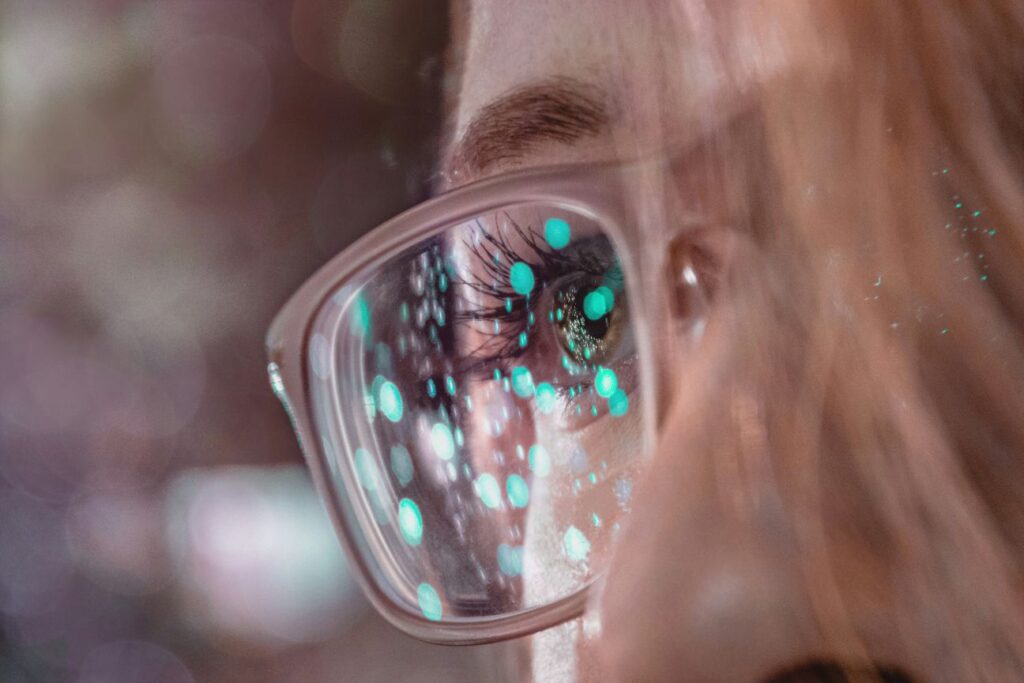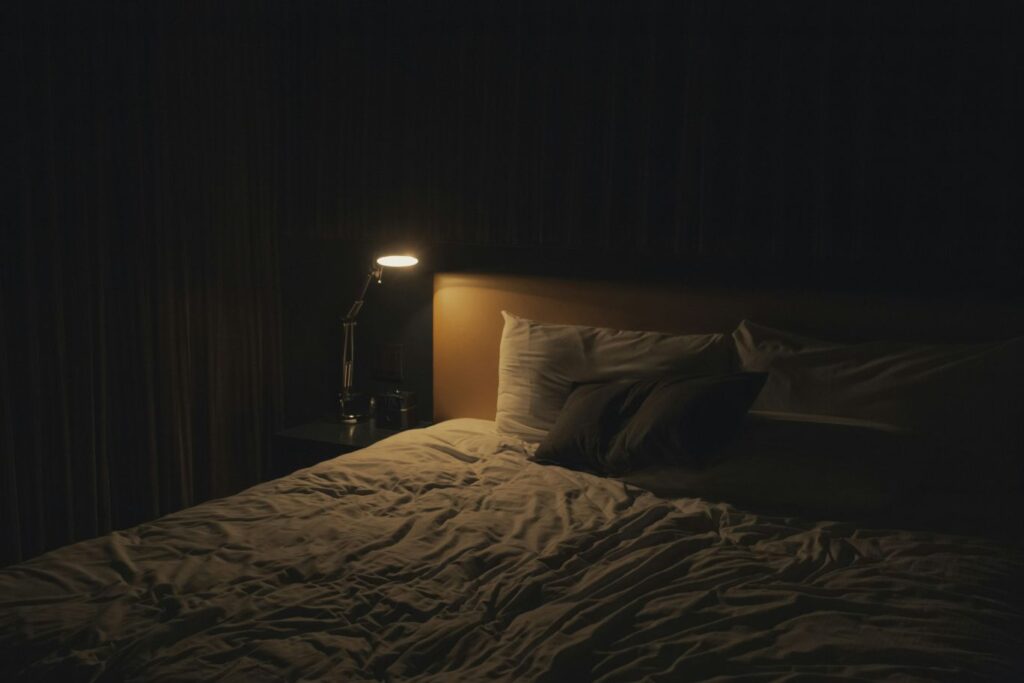A component of sunlight and prevalent in visible light from electronic devices, blue light has been studied for its effects on sleep and overall health in the general population. An investigation published in the International Research Journal of Advanced Engineering and Science discovered that people who use electronic devices before bed may have more trouble falling asleep and waking up during the night as compared to people who don’t. Furthermore, those who use electronics before night may be more susceptible to health problems like headaches and eye strain. However, delving into the implications of blue light for pregnant women reveals a more complex picture.
In today’s world, where screens and digital devices have become essential for daily living, it’s crucial to understand how blue light uniquely impacts expectant mothers, considering potential consequences on both maternal well-being and fetal development. Exploring this intersection sheds light on the importance of tailored insights, ensuring the health and comfort of both mother and child during this delicate period.
Table of Contents
Blue light and its effects on pregnant women
Blue light emitted by electronic devices can interfere with the production of melatonin, a hormone responsible for regulating sleep-wake cycles. Studies on the general population have shown that exposure to blue light, especially in the evening, can suppress melatonin production and disrupt sleeping patterns.
For pregnant women, quality sleep is crucial for both maternal and fetal health. Sleep disturbances during pregnancy are associated with adverse outcomes, including alterations in maternal glucose tolerance. According to a study published in the Annals of the New York Academy of Science, changes in maternal glucose tolerance may consequently lead to alterations in placental nutrients and glucose transport, which negatively affect fetal growth.
A recent study conducted by researchers from Northwestern University’s Feinberg School of Medicine suggests that pregnant individuals can reduce the risk of gestational diabetes by dimming lights in their homes and turning off screens, such as computer monitors and smartphones, a few hours before bedtime. The study, one of the first multi-site investigations on this topic, established that women who developed gestational diabetes had higher blue light exposure three hours before sleep onset. Gestational diabetes is associated with obstetric complications and increased risks for both mother and child. Researchers concluded that reducing pre-sleep blue light exposure, possibly linked to sympathetic nerve overactivity affecting glucose metabolism, is a preventive measure against gestational diabetes.
Furthermore, blue light and its effect on sleep quality also affect the secretion of hormones beyond melatonin. Hormones like cortisol, which is associated with stress, and reproductive hormones such as estrogen and progesterone can be influenced by irregular light exposure. For pregnant women already navigating the demands of pregnancy, heightened stress can have implications on both maternal and fetal health. One prospective study emphasized that focusing on maternal psychological well-being is imperative since it relates closely to birth outcomes and infant development. For instance, poor psychological well-being in pregnant mothers was associated with preterm birth, low birth weight babies, and impaired fetal brain development
To help pregnant women mitigate these outcomes, below are 3 tips for effectively managing blue light exposure.
3 tips for managing blue light exposure while pregnant
Use anti-blue light filters

In one study, researchers found that anti-blue light glasses positively affected the circadian system, with an earlier onset and rise of melatonin levels in healthy pregnant women. Pregnant women, especially those who may use their devices late into the night, can benefit from blue light glasses to help regulate their body’s internal body clock.
For this, Oakley has a range of gaming glasses that filter blue light and can be used for both gaming and general screen use. The Helux gaming model, in particular, features an extra-large frame made of lightweight material for better field-of-view. The frames also come with ultra-thin, headset-compatible temples to avoid discomfort during long periods of screen use, which can be helpful for pregnant women who work from home or spend long hours on digital devices. Alternatively, you can opt to equip your device screen with anti-blue light screen protectors like the Eyesafe RPF60, which provides the highest level of blue light filtration in the market while maintaining vivid color.
Limit screen time

On top of using blue-light filtering accessories, it’s also critical that you maintain good sleep hygiene by limiting screen time. As we discussed above, screens emit blue light that can disrupt sleep cycles. Good sleep hygiene is something you should practice pre- and post-birth since getting quality rest is just as important for new mothers. So, as much as possible, try not to use devices like phones, computers, and TVs too late at night.
To keep blue light from messing up your circadian rhythm, limit your screen time to at least an hour before bed. Instead, create a relaxing bedtime routine that will boost melatonin production. This can be done by taking a warm bath, reading, meditating or doing breathwork before bed, and dimming artificial lights, which we’ll discuss more in the next section.
Dim indoor lights at night

While getting natural light during the day helps produce serotonin and, in turn, melatonin, too much artificial light in the evening interferes with melatonin production. Artificial light includes bright indoor LEDs and fluorescent bulbs. When it’s getting close to bedtime, dim the lights in your bedroom to get your body ready for sleep. According to the Sleep Foundation, it would be best to stick to just using night lights in warm amber colors because yellow and orange hues close to red on the light spectrum are thought to stimulate sleep hormones.
If you don’t already have a good night light, sleep doctor Michael Breus recommends purchasing lamps like the Casper Glow Light or the Sleep Aid Red Night Light. To get the best sleep, keeping your bedroom quiet and at a comfortable temperature can also be helpful.
Given the effects of blue light, expectant mothers will need to be smart about screens and screen use. Knowing how blue light can impact maternal health and how you can mitigate these consequences helps ensure a safer and happier journey into motherhood. So, keep this knowledge in mind and make sure that device use doesn’t overshadow the joy of this special period of your life.













